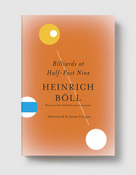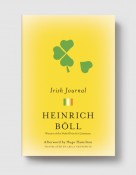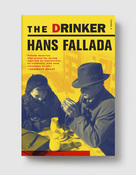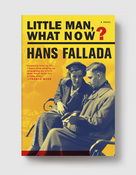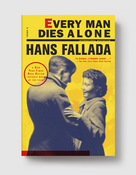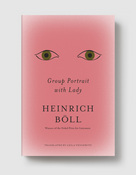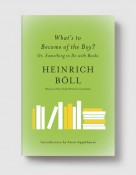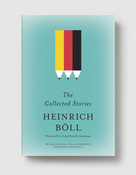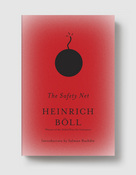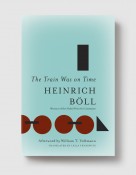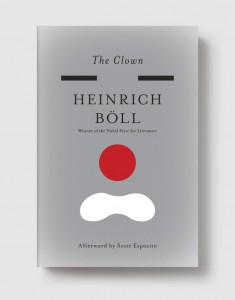
List price: $13.95
- Pages288
- ISBN9781935554172
- Publication dateDecember, 2010
- Categories
- Booksellers
- Media
- Academics & Librarians
The Clown
The Essential Heinrich Böll
Heinrich Böll
Translated by Leila Vennewitz
with an afterword by Scott Esposito
“Böll is an expert marksman: the arrows are sharp, the feathers smooth, the targets numerous.” —The New York Times
Acclaimed entertainer Hans Schnier collapses when his beloved Marie leaves him because he won’t marry her within the Catholic Church.
The desertion triggers a searing re-examination of his life — the loss of his sister during the war, the demands of his millionaire father, and the hypocrisies of hs mother, who first fought to “save” Germany from the Jews, then worked for “reconciliation” afterwards.
Heinrich Böll’s gripping consideration of how to overcome guilted and live up to idealism — how to find something to believe in — gives stirring evidence of why he was such an unwelcome presence in post-War German consciousness … and why he was such a necessary one.
“Melville House has now reissued handsome paperbacks of three of Böll’s most important novels, and in each we find the 1972 Nobel Prize winner, with a humanist’s skepticism and tenderness, refusing to allow his fellow Germans to forgive themselves and move on…. [In The Clown] the abstractions of existentialism are manifested in vivid flesh-and-blood characters.” —Sam Sacks, The Wall Street Journal
“His work reaches the highest level of creative originality and stylistic perfection.” —The Daily Telegraph
“The renewal of German literature, to which Heinrich Böll’s achievements witness, and of which they are a significant part, is not an experiment with form. Instead it is a rebirth out of annihilation, a resurrection, a culture which, ravaged by icy nights and condemned to extinction, sends up new shoots, blossoms, and matures to the joy and benefit of us all.” —The Nobel Prize Committee
“A man of deep feeling and intelligence, speaking in a strongly contemporary voice, he recorded in his early stories the way it felt to come home to a destroyed country.The tone was neither angry, ironic nor surreal. On the contrary, these stories gave us the slow-moving thoughtfulness of a narrator in pain, walking about on a lunar landscape, knowing he must make sense of things more quickly than he is able to do.” —Vivian Gornick, The New York Times

